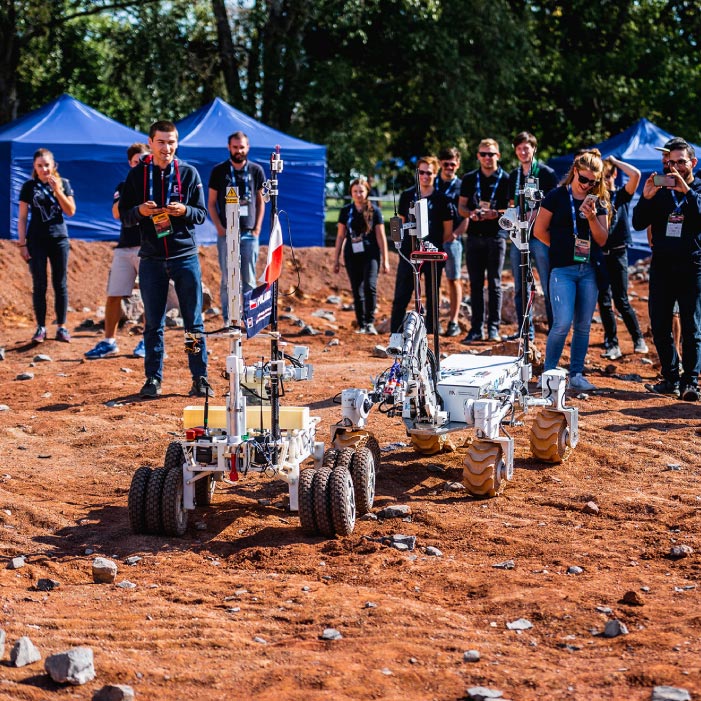Article by Maciej Iwankiewicz,
Journalist, European Space Foundation
The cosmos is an old thing – according to various theories concerning its origin and expansion, it is at least several billion years old. However, it created the conditions for the emergence of life on one of the microscopic planets, orbiting a tiny star somewhere on the sidelines of a small galaxy, and even a species intelligent enough to take up the challenge of exploring the universe.
Space technologies, as well as robotics and artificial intelligence, are developing dynamically. Down-to-earth companies that have nothing to do with space often consider it “daydreaming”. However, it is a mindset that does not consider a broader perspective and an innovative approach to problems that can be solved thanks to engineers and specialists in space technologies.
Their work, however, is not limited to dreaming and passionately looking for new “mechanical toys”. Contrary to appearances, these robots and machines, based on innovative space technologies, have already become devices that allow us to actively solve technical and technological challenges, serve the development of our civilization, and conduct deeper exploration of outer space.
Thousands of people around the world work on innovative technologies. Many have associated their professional careers with the space and robotics sectors, and they are specialists with an interdisciplinary approach to challenges. Most of them are young people, often still students of technical universities from all over the world. However, there are also people who, despite their mature age, have kept youthful dreams and are engaged in the conquest of space.
I am happy to meet such people on the occasion of the European Rover Challenge. I see their enormous potential, creativity, and willingness to create innovative solutions, striving to gain education and experience. You can also see that they have a lot of fun with their work. Young people become the best specialists in their fields. Together with experienced experts, they co-create companies and even whole new sectors of the world economy.
They also have competencies, valuable not only because of their knowledge and technical experience, but covering the so-called soft skills – teamwork, interdisciplinary problem-solving, an open approach to the needs and possibilities of meeting social and economic conditions. They engage in unusual challenges with commitment, which undoubtedly distinguishes them from the population.
It will soon be challenging to find better candidates for employees, just like those future engineers who participate in the European Rover Challenge. And more importantly, not only technology companies may be interested in such specialists. Will they find suitable employment and get a chance for further development? Will business see this as an opportunity for itself? Will it be willing to participate in future careers by supporting innovative thinking and technologies? Perhaps, as long as it understands that the future is created not only here and now, but also in “mind-blowing” visions straight from science-fiction.

